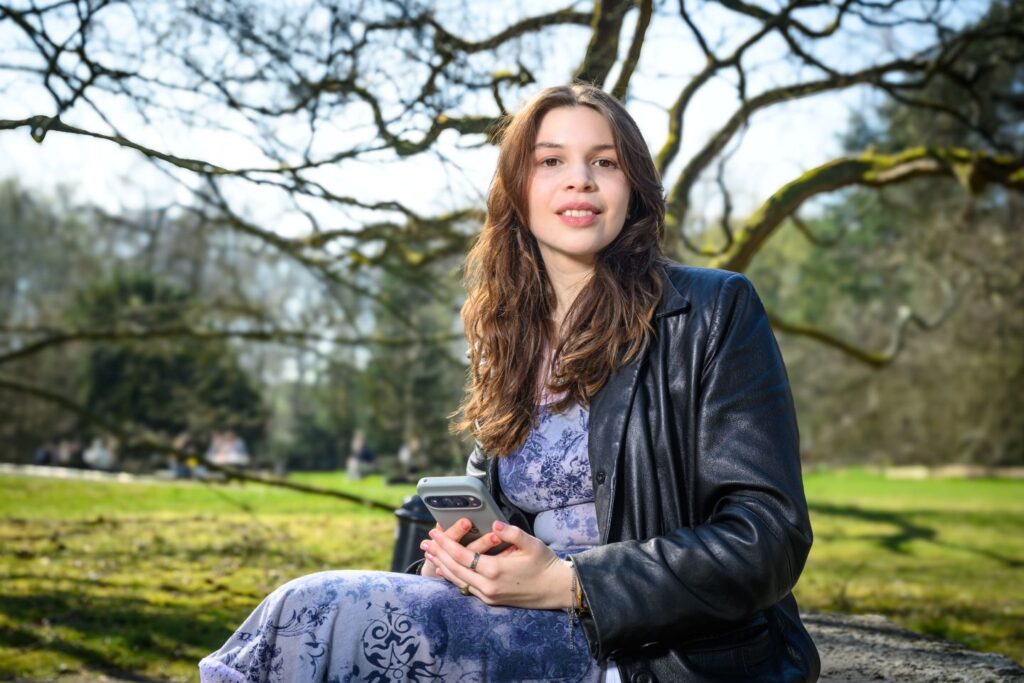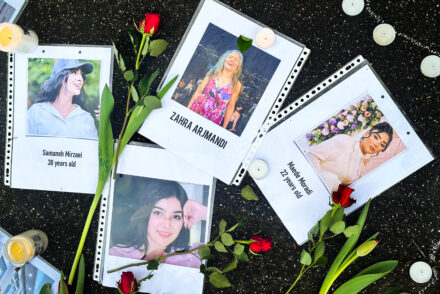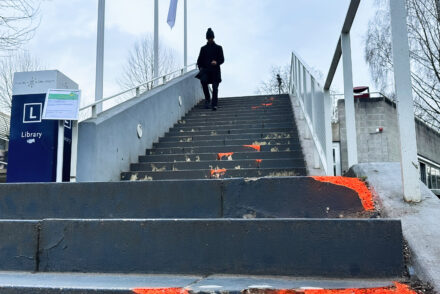Clara Daniels’ Internet Bubble: ‘Sometimes I Try to Confuse the Algorithm’
Algorithms guide us through the endless maze of the internet. But are algorithms really that smart? This month, we delve into the bubble of Clara Daniels (23), a research master’s student in Linguistics and Communication Science from Germany. ‘I find more peace without Instagram.’

What stands out to you about algorithms?
‘When I got a new phone, the content suddenly didn’t match my preferences anymore. The algorithm had to get to know me again. That made me realize how we build a parasocial relationship with algorithms. We trust them and feel ‘disappointed’ when we get irrelevant content, as if the algorithm should know us like a friend.’
Are you in a filter bubble that mainly confirms your own views? Do you ever try to get out of it?
‘Yes, although I have other bubbles on different platforms. My Albert Heijn app shows me different information than my friend. I sometimes try to confuse the algorithms, for example, with my bonus card. When I’m with my friend, I scan his groceries. I’m mostly vegetarian, and he isn’t, so the algorithm gets confused. I find that amusing: it shows that it’s ultimately just a dumb machine that misunderstands things.’
Would you delete your social media?
‘I deleted TikTok four years ago and Instagram last year when I was writing my thesis. During my thesis, I did research on Instagram through another account. I noticed that after a day of research, I was completely done with social media. I started reading more physical books and felt more at peace. I never downloaded Instagram again.
‘Still, I sometimes miss social media. For example, I discovered through Instagram that an old childhood friend was engaged. I would never have found out otherwise. But I get a lot in return: more control over my offline life.’
Have you become more resilient to algorithms?
‘I’m much more aware of them now. I’ve taken many courses on algorithms and can reflect well on their effects. I’m also more mature now, which helps. Online, there are many social expectations and trends, like the ‘clean girl aesthetic’ or extremely structured morning routines. I don’t meet those and accept that more now. Every day looks different for me, and that’s perfectly fine.’
Do you interact with algorithms differently than, for example, your parents?
‘My parents see themselves much more separate from the machine. But for me, it’s easy to start scrolling as soon as a friend goes to the bathroom when we’re sitting in a restaurant. Then I don’t feel alone because I always have my ‘pocket friend.’ I’m aware of it, but I still maintain that relationship with my phone. We’re not getting married, but there is a certain trust.’
Do algorithms influence your online experience positively or negatively?
‘There are positive aspects: it’s nice to get content that aligns with my interests. Art has always been one of my hobbies, and I see a lot of that. I’ve also learned a lot about topics like gender identity and disabilities. Online stories help me understand people better, even if I don’t share their opinion.
‘But there are also negative aspects. We communicate more and more with a machine and less with real people. Sometimes it seems we’ve forgotten how to approach people outside our phones. Going to a café alone feels awkward for many people, for example.’






